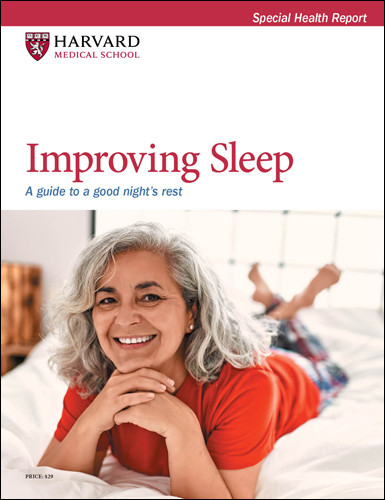Got pain? Get better sleep

The cell phone blares out reveille. Your eyes open reluctantly and you realize it's morning, having only gone to bed four hours earlier because of a late-night party. You creak out of bed to ready yourself for work, arthritic joints hurting much more than usual. A painful day lies ahead even after taking ibuprofen. Does this sound familiar? If it does, you are not alone. Nearly 70% of Americans report getting insufficient sleep on a regular basis, and approximately 20% of Americans suffer from chronic pain. Recently, the intersection between these two conditions has become more apparent.
The association between sleep deficiency or poor quality sleep and increased perception of pain from various medical conditions is well known; poor sleep quality predicts greater intensity of pain from conditions such as back strain, arthritis, and fibromyalgia. In many cases, the relationship is bi-directional. For example, my colleagues and I have documented that heartburn is worse after a poor night's sleep, and conversely heartburn can result in disrupted sleep.
Recent studies now provide a greater understanding of why pain worsens after poor sleep. In brain imaging studies using magnetic resonance imaging (MRI), there is greater activation of brain regions controlling perception of pain after a poor night's sleep. In addition, the activity of other brain regions responsible for dampening the sensation of increased pain is reduced. The net effect is that the perception of pain is accentuated after a poor or inadequate amount of sleep. Importantly, this observation is not just a phenomenon confined to the laboratory. In surveys of individuals with chronic pain, a night of poor sleep predicts worse pain.
The relationship between poor quality sleep and worsening pain has important implications for individuals experiencing both acute and chronic pain. More or better sleep may lessen the pain that they are experiencing.
There also is a potential public health message that cannot be ignored. The opioid epidemic is rampant in the United States, related in part to overprescription of opioids for chronic pain. Unfortunately, addiction and inadvertent overdoses are increasingly frequent. How many opioid-related deaths can be avoided if an intervention to improve sleep is implemented? The answer is not known. However, better sleep is inexpensive and generally does not require a physician's prescription. In addition to other initiatives to address the opioid epidemic, messaging about the benefits of sleep on reducing the perception of pain could be a cost-effective public health investment.
References
Sleep disturbances and severe stress as glial activators: key targets for treating central sensitization in chronic pain patients?Expert Opinion on Therapeutic Targets, August 2017.
Sleep and pain sensitivity in adults. Pain, August 2015.
Relationships between sleep quality and pH monitoring findings in persons with gastroesophageal reflux disease. Journal of Clinical Sleep Medicine, August 2007.
About the Author

Stuart Quan, MD, Contributing Editor
Disclaimer:
As a service to our readers, Harvard Health Publishing provides access to our library of archived content. Please note the date of last review or update on all articles.
No content on this site, regardless of date, should ever be used as a substitute for direct medical advice from your doctor or other qualified clinician.
















